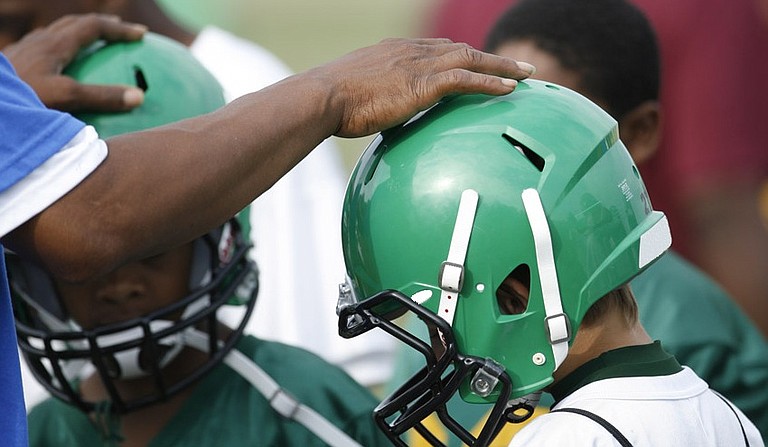Under the Mississippi Youth Concussion Law, athletes who report or show symptoms of a concussion must be immediately removed from a practice or game. That athlete can't return to the game or practice for the remainder of the day even if the athlete says he or she is able to return to play.
Thursday, January 30, 2014
During the Super Bowl this Sunday, the topic of concussions is bound to come up at some point. Contact sports have come under fire in the last few years over head injuries, but none so much as football.
While it might not be the most important legislative topic in Mississippi, both the House and the Senate passed a concussion bill early this week. Mississippi was the last state in the union to not have some sort of concussion bill for youth sports.
The NFL and the Mississippi State Medical Association pushed House Bill 48, also known as the Mississippi Youth Concussion Law. The law sets concussion protocol for any school-sponsored athletic events for members of the Mississippi High School Activities Association or Mississippi Association of Independent Schools, as well as non-members of either the MHSAA or the MAIS for grades 7 through 12.
Under the bill, athletes who report or show symptoms of a concussion must be immediately removed from a practice or game. That athlete can't return to the game or practice for the remainder of the day even if the athlete says he or she is able to return to play.
A health-care provider must evaluate the athlete, preferably one with experience in concussions. A player diagnosed with a concussion can't return to play until he or she has made a full recovery, and the health-care provider has cleared the return.
The concussed player cannot return to a competitive game until he has shown in a supervised full practice that he no longer shows symptoms of the concussion. Any athlete with a diagnosed concussion cannot participate in practices or games until she shows no signs of concussion symptoms.
Parents or guardians must receive and signed a copy of the concussion policy before their children are allowed to take part in school-sponsored athletic events. The law does not cover any youth leagues not affiliated with schools, such as youth soccer leagues or baseball leagues.
The law states that parents or guardians are not able to sue schools, school districts, school employees, health-care providers or others if they followed the provisions of this bill.
The Mississippi State Department of Health will endorse one concussion education course under the new bill. The course will provide information to Mississippians on the nature and risk of concussions in youth sports. The MSDH will make the course available online and will include education and training materials from the U.S. Centers for Disease Control and Prevention free of charge.
Similar bills that would have forced leagues not affiliated with schools to adopt concussion protocols died in committee in 2012 and 2013.
Several schools already had concussion protocols in place, but this bill gives every school in the state the same minimum guidelines to follow.
Gov. Phil Bryant signed the legislation at a ceremonial bill signing at the Capitol this afternoon.
This story reflects a correction: An earlier version misstated which agency will endorse a concussion education course under the law. That agency is the Mississippi State Department of Health not the State Department of Mental Health. The Jackson Free Press apologizes for the error.

Comments
Use the comment form below to begin a discussion about this content.
Sign in to comment
Or login with:
OpenID